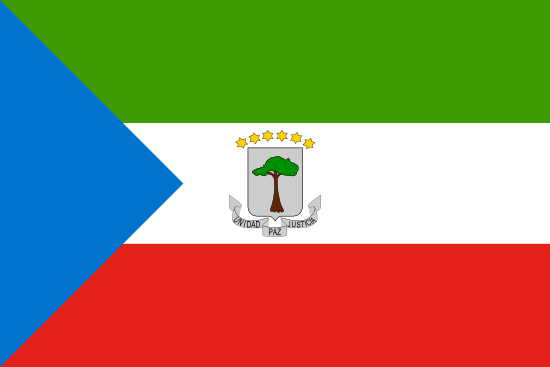Nigeria in the Early 2000’s
At the beginning of the 21st century, celebrated the return to democracy after 15 years of military power, with the arrival to the presidency in free elections of General O. Obasanjo (February 1999), Nigeria had to face a series of serious problems that neither the authoritarian governments that have succeeded each other over the years, nor a conspicuous oil income had been able to solve. These were largely structural problems of society and the economy which in some ways the expansion of the oil sector and its growing centrality, with the dominant role of large companies and the spread of corruption and clientelism, had even contributed to aggravate.
According to SOURCEMAKEUP.COM, an important factor of the crisis was represented by the persistent ethnic and religious tensions, which pitted a Muslim North against a Christian or animist South; this contrast was also accentuated following the spread of forms of Islamic fundamentalism in many Northern States, some of which arrived at the end of 1999, to introduce the Koranic law into their legal systems, threatening the very judicial and constitutional framework of the federal state. Religious problems flanked and overlapped with political and economic ones: the southern and south-eastern areas were in fact traditionally under-represented in institutions and, despite hosting the majority of oil fields, they had never expressed prominent exponents in the government of the country, enjoying minimally of the benefits of oil rent, but bearing the environmental and social costs of oil extraction. Widespread levels of corruption also prevented both the full use of oil facilities and the destination of oil revenues for investments and for the country’s economic growth.
The first years of Obasanjo’s government succeeded in guaranteeing the minimum conditions for the functioning of the democratic system, with respect for electoral deadlines, even if numerous irregularities in the conduct of consultations were repeatedly denounced both within the country and by international observers. Among the first measures of the government were the removal of military leaders, compromises with the previous regime, and the suspension of contracts with oil companies linked to the military environment. The credit and the consensus enjoyed by the president, however, failed to translate, in this first phase, into particularly incisive political choices, also due to the constant search for balance and compromises between the various components of the government,1999. Presidential and legislative elections were held in April 2003. The first saw the confirmation of Obasanjo with 62 % of the votes, the second gave the victory to the president’s party, the People’s Democratic Party, which won 223 seats out of 360 in the House and 76 out of 109 in the Senate, followed by All Nigeria People’s Party with 96 and 27 seats and by Alliance for democracy with 34 and 6. After the consultations there was a change of direction: Obasanjo launched a program focused on accelerating economic reforms and the fight against corruption, and included in the new government team some technicians with extensive experience in international financial organizations. However, the government found itself operating in a very difficult context, marked by very strong social unrest and continuous outbursts of violence. In fact, inter-ethnic conflicts recurred with alarming regularity during both Obasanjo presidencies: in 2001 a tribal clash in the central-eastern region of Benue forced thousands of people to flee; in 2002 about 100 registered in Lagosdeaths, as a result of a violent confrontation between Hausa, Muslims, and Yoruba, Christians; in August 2003, bloody clashes in the Niger Delta region between Ijaw and Itsekiri resulted in the deaths of about 100 people and the wounding of over 1000 ; in February 2006, violent riots in several northern cities and the southern city of Onitsha resulted in a death toll of over 100. Some episodes of violence were also characterized by the overlapping of the ethnic aspects of social and economic components: the clashes between rival gangs in the Port Harcourt oil port in the summer of 2004, the kidnappings in 2006of foreign workers of the oil industries, the repeated attacks on oil pipelines to appropriate sometimes large quantities of oil (in May 2006 an attempt to tamper with an oil pipeline caused an explosion in which about 200 people died). These kidnappings and attacks, in part interpretable as simple illegal behaviors both by individuals and by gangs operating within a real clandestine oil market, were however also partly included in an attempt by rebel groups in the South. to put pressure on the government to get more resources for the southern regions.
Economic issues emerged as another persistent element of tension for the government: repeated hikes in the price of oil for the internal market were greeted by protests and unrest, with the proclamation by the unions of national strikes in June 2003 and June 2004 until the increase in the prices of petroleum products on international markets seemed to improve the country’s economic situation. Another fundamental point of the government program was that relating to the renegotiation of a huge foreign debt (37 billion dollars), contracted by successive dictatorial governments until 1999. The debt represented an obstacle to any reform initiative, if we take into account that in2005 the same debt service was five times the education budget and fifteen times the health budget. Furthermore, as the owner of valuable raw materials, according to the criteria established by the World Bank and the International Monetary Fund, Nigeria could not access the status of a highly indebted poor country and therefore enjoy the cancellation of 90 % of the debt. After a long negotiation and following Parliament’s firm refusal to honor the debt, in October 2005 Nigeria obtained from the Paris Club (the largest group of creditors) the cancellation of 67 % of the debt, against a commitment to return the remainder with the oil proceeds.
In foreign policy, the Obasanjo presidency was characterized by a notable dynamism: Nigeria, fully admitted to the Commonwealth, established good relations with the United States and with the European Union (visit of B. Clinton in Nigeria in ag. 2000, visit of Obasanjo to Rome in September 2000), and made agreements with China, interested in the exploitation of oil resources (Jan. 2006). He also improved relations with the countries of the area, participating in peacekeeping missions in Sierra Leone and Liberia, and signed an agreement with Cameroon for the redefinition of the border of the Bekassi region, a territory of great mining interest, starting a solution for a long litigation.
In June 2006, the Senate rejected a constitutional amendment presented by the People’s Democratic Party and aimed at allowing Obasanjo a third presidential candidacy.



